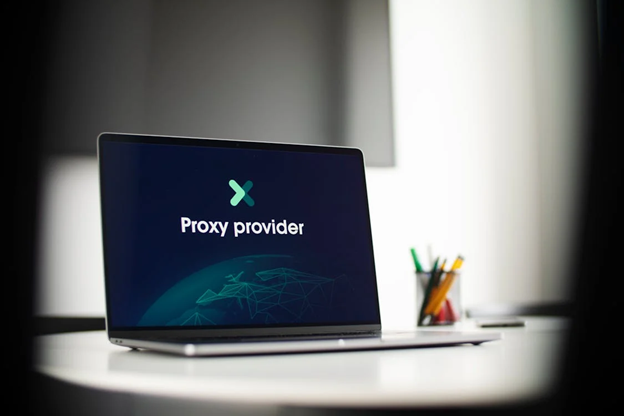%20(7).png&w=3840&q=75)
A growing concern for businesses today is the increasing frequency and sophistication of cybersecurity threats. These threats can lead to devastating data breaches, financial loss, and a tarnished reputation. As remote work and digital transformation become mainstream, ensuring secure connections for employees has never been more critical. This is where Virtual Private Networks (VPNs) come into play, providing robust protection against these ever-evolving threats while also offering operational efficiency and reduced costs.

Securing Remote Connections
With the rise of remote work, securing internet connections has become imperative for businesses. VPNs encrypt data being transmitted over networks, ensuring that sensitive information remains confidential and protected from malicious actors. This encryption protects against data interception and allows employees to work securely from anywhere, even on public Wi-Fi networks. By disguising IP addresses, VPNs also help mitigate risks associated with location tracking and external attacks, enhancing the security posture of an organization. At least 80% of businesses experience at least one cyber attack resulting from unsecured networks, highlighting the necessity of VPNs in protecting remote work environments.
Helping Businesses Cut Costs
In addition to security measures, VPNs can significantly help businesses cut costs related to cybersecurity. Organizations can leverage affordable VPN services to provide their employees with secure access to the company network without requiring extensive physical infrastructure. This not only reduces overhead expenses associated with maintaining private links but also allows businesses to save on hardware costs and IT support associated with traditional secure connection methods. Implementing a VPN reduces the likelihood of data breaches, ultimately saving businesses from potential legal and recovery costs, which can run into thousands or even millions of dollars.
Streamlined Network Management
VPNs also facilitate streamlined network management. Through a centralized VPN solution, IT departments can monitor network usage and security logs more efficiently. They can implement updates and security protocols across all user devices from a single interface, ensuring compliance and reducing vulnerabilities. VPNs can assist organizations in segregating traffic according to departments or functions, improving security while ensuring that only authorized users can access specific data. This kind of management not only enhances security but also boosts overall productivity, making it easier for businesses to focus on their core activities without constant worry about network threats.
Safeguarding Data Privacy
Data privacy is another area where VPNs offer robust protections. When businesses use a VPN, they ensure that their data remains private and secure from prying eyes—internal or external. By masking IP addresses and encrypting communication, VPNs help prevent eavesdroppers from accessing sensitive information exchanged between clients, vendors, and employees. Maintaining data privacy has become a legal requirement in many jurisdictions. Heavy penalties and legal ramifications may follow noncompliance. Utilizing a reliable VPN can therefore not only protect sensitive data but also help avoid liabilities associated with data protection regulations like GDPR or CCPA.
Improving Compliance with Industry Regulations
Many industries are governed by stringent data protection regulations. Tools like VPNs can assist organizations in meeting compliance requirements. For instance, organizations in the healthcare sector must comply with HIPAA regulations, which mandate the protection of patient information. VPNs help healthcare organizations minimize risks of data exposure and meet compliance mandates effectively. Similarly, financial institutions have regulations that require them to protect client data. VPNs facilitate secure transactions and communications, making it easier for these organizations to comply with legal obligations.

Enhancing Business Continuity Plans
Business continuity becomes vital during unforeseen crises, whether due to natural disasters, cyber incidents, or global events like pandemics. VPNs can be instrumental in ensuring continuity. By enabling secure remote access, employees can perform their tasks from anywhere during disruptions. This adaptability not only helps maintain productivity during challenging times but also ensures that critical business functions can continue uninterrupted. Consequently, organizations can recover faster from incidents that disrupt operations, fostering resilience and sustainability.
Customized Solutions for Diverse Needs
Every business is unique, and one-size-fits-all solutions may not adequately address specific needs. VPN providers offer customizable solutions to match different business requirements, ensuring that security measures align perfectly with the company's operational structure. From small startups to large enterprises, tailored VPN services can enhance protection against cyber threats while accommodating various workflow processes. Organizations can select features that suit their operations, providing flexibility in managing security without compromising performance.
Future-Proofing Against Evolving Threats
As technology evolves, so do cybercriminals' tactics. VPNs play a vital role in future-proofing businesses against these growing threats. By consistently updating their protocols and infrastructure, VPN service providers can offer better protection measures that reflect technological advancements in cybersecurity. Staying informed about the security landscape allows organizations to adapt their strategies proactively and protect their sensitive data against possible vulnerabilities exploited by attackers.
The implementation of VPNs can significantly bolster a business's cybersecurity framework. From securing remote connections to safeguarding data privacy, these tools are indispensable in navigating today's complex digital landscape. By leveraging customizable solutions, organizations can enhance compliance and ensure business continuity while effectively managing costs associated with cybersecurity.

.png&w=3840&q=75)
%20(2).png&w=3840&q=75)
.png&w=3840&q=75)
%20(54).png&w=3840&q=75)
%20(53).png&w=3840&q=75)